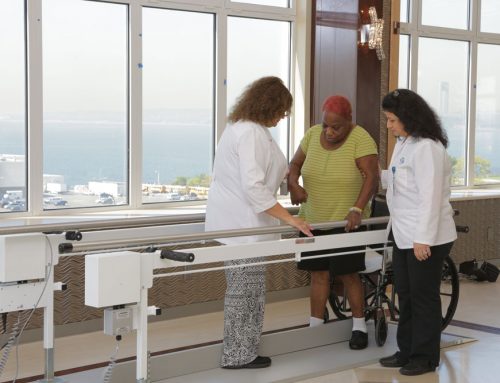If you suddenly feel unsteady on your feet or dizzy, you may well have inner ear problems. The inner ear contains canals with crystals that control balance. If these are disturbed or inflamed, you may experience a spinning feeling even when sitting still.
What follows is an outline of the main possible causes and symptoms of vertigo, dizziness, and balance or neurological disorders. Be sure to talk to a doctor if you have dizzy spells. Explain to the doctor when they occur and tell him or her about any medications you might be taking. There is no one-size-fits-all-remedy for inner ear problems. An ear, nose and throat specialist will assess your health history and particulars before making a diagnosis.

Causes of Inner Ear Problems
Vertigo, or “benign positional vertigo” (BVP) often occurs when you move your head suddenly in a certain way. When you bend down, turn your head quickly or look up is when you are most likely to experience BVP. Inner ear problems occur when crystals in the canals in your inner ear have shifted for some reason.
A common cause of balance disorders however is a viral infection. A swelling in the inner ear caused by inflammation can cause the brain to receive the wrong balance signals. Infection can cause vertigo to last for hours or days. Migraines may also cause inner ear problems. A less common cause is Meniere’s disease, which occurs when there is too much fluid in the ear. Tumors or injury are also possible causes.
Symptoms
Inner ear problems may appear in different forms, but their symptoms are similar. A sudden feeling of dizziness or vertigo is the most common symptom of inner ear issues. Symptoms may include a ringing or buzzing in the ears (tinnitus) or temporary deafness.
Other symptoms are feeling nauseous, a feeling of fullness in the ear, or ear ache. Equally, some people with inner ear problems may feel lightheaded, or as if they are about to fall. They may experience things spinning around them when they move about. They may have difficulty balancing when walking, standing, or dressing.
Further symptoms of inner ear issues are headache, and fluid or pus coming from your ear. More generalized symptoms of infection, such as fever, are also possible.
Inner ear imbalance
Inner ear problems usually cause vertigo that only lasts for a few seconds. However, if you are concerned or notice that it is occurring more frequently, seek medical attention. Vertigo comes on suddenly and unexpectedly. For that reason, it may be safer if you stop doing potentially dangerous things that require your full attention.
It is vital to treat balance problems, especially if they persist, as they can affect your daily life. Treatment options may include vestibular rehabilitation therapy, a specialist form of physical therapy. Treating inner ear problems is important as they can lead to a fall that can causes serious injury.
This content comprises informative and educational resources only and can not be considered as a substitute for professional health or medical guidance. Reliance on any information provided in this article is solely at your own risk. If you have any inquiries or apprehensions about your medical condition or health goals, talk with a licensed physician or healthcare provider.






Leave A Comment